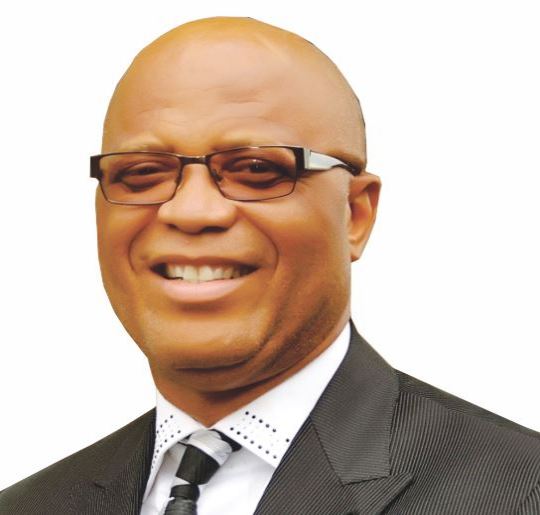
By Victor R. Etok-Akpan/08065608338
As we await the swearing into office of the Governor-Elect of Akwa Ibom State Pastor Umo Eno,(PUE), to take up the ruins of power in living up to his mandate to govern the State, we may now come to face the fact, however extended, that while the policy analysis of the “ARISE” Agenda by PUE has provided on the policy direction of his administration for the Akwa Ibom people, in actual fact, of course, political analyst agree that, “power’’ is always held by a number of persons rather than by one; hence “policy is made through the complex process by which these persons exert power or influence over each other’’.
To this extent, the implementation of the “ARISE” Agenda by PUE the Governor-Elect for the State, will entail securing co-operation among politicians and specialist and all the more, in looking realistically into the merits of alternative policies by highly skilled practitioners of partisan analysis, which perhaps is their main source and influence or power to analysis policy implementations of the leader’s attitude and values, on whom the authority has been conceded to govern.
In this connection, we may demand for the executive leadership in legislative policy making of PUE, for a degree of leadership in the co-ordination of legislative programs, within the legislature – the Akwa Ibom State House of Assembly, as a major institution of government for initiating and creating political issues and projecting them for public civic-debate. However, this could change the character of the analysis as a result, especially in reaching an agreement as the policy making proceeds to resolve policy issues on what constitutes public interest from the “ARISE” Agenda’s Five (5) point-development program for implementation, on: Agricultural revolution, Rural development, Infrastructural maintenance/advancement, Security management, and educational advancement and on the gains of its implementation being worth the cost.
Incidentally, the “ARISE” Agenda’s development components as the economic blueprint for the State had always been promised and for which previous administration had tried to address the issues necessary for our productive livelihood with various levels of success or failure.
On this note, the challenge which we still have and as seen, goes beyond the mere provision of blueprints for the development of the State but as said, on other issues which must be addressed, known to do with leadership.
Thus, leadership according to political analyst is “one of the most important variables that affect the performance of any organization, institution or nation”. Scholars have opined that the success or failure of any organization and nation depends on the leadership excellence and not the managerial acumen. Therefore, the importance of leadership for the success of an organization or nation cannot be overemphasized.
For us Akwaibomites, as a people, the first step to leadership responsibility with what Maxwell argued, is to develop a strong vision, mission and the values for our State, as amplified by the “DAKKADA” mantra of Governor Udom Emmanuel, on re-orientation of the Akwa Ibom people to have us believe our abilities with a “can do” spirit to achieve greatness.
The second step which the “ARISE” Agenda in itself propagates is to set the direction for the State as a productive entity, on its investments and in areas of our comparative advantage to improve upon our economic and social wellbeing.
Likewise and coupled to the above is a third step, for democratic transparency which in an extended sense, will cover other things besides forms of government to include economic democracy and social democracy and are very much in common with political democracy.
In so doing, members of the legislative assembly often submit or surrender to a small legislative-executive body – the State Executive Council, for most of the immediate policy making authority, for consistency in coordinating government programs. Therefore as government takes on new functions, some of which are technical such as stated on the “ARISE” Agenda’s set goals, for food sufficiency, job creation, rural development, infrastructural provisions/public utilities, small scale industries, internet connection and so on, and involving problems beyond the competence and time that the legislative can bring to their solution, thus further increasing the influence of the Executive in addition to the constitutional authority of the Governor to supervise political appointees of the Ministries, Departments and Agencies, (MDA’s), to check the inadequacies of legislature policy making on the need to avoid issues such as: the fragmentation of policy making responsibilities for lack of corporation among legislators and for a central leadership to come largely from the Governor for useful results. Also is the need to avoid localism by legislators, thinking only for the interest of their local area they represent; thus, the Executive leadership bridge the gap with a broad-based sense for purposeful governance with more acceptable results. Not the least is that given a situation of legislative policy making incapacity over its engagements in oversight function of the executive branch such as though budgetary hearings, the executive orders of the Governor on policy making help to main focus on good governance.
Considerably, given the constitution power of the Governor to make appointments by far boarder than any other official, he oversees the executive branch, he is the chief security officer of the State, he can veto legislation, he is the chief visioner for the State’s economic wellbeing and can be seen to do more, however, than what the constitution permits him to do with coming to rule almost as an emperor.
Nevertheless, the choice of members of the State Executive Council by PUE as Governor of the State, to serve as Commissioners, Special Advisers and Secretary to the State Government and MDA’s is vital to his administration’s ability to perform satisfactorily for its due success and for a stable continuing support of the voters and people for a second term in office by 2027. This is certainly one overwhelming area of importance that could constrain the ability of the Governor Elect, PUE, in providing the desired leadership on his assumption of office as Governor of the State from May 29, 2023.
Where political appointees and members of the State Executive Council of the government and state, fail to share a common vision with the Governor and enable others contribute their abilities to the set goals of the government, for sound economic management, strong social mobilization and a stable political system, given to the positive policy inclinations of the government for productivity and growth.
This brings one to a point of the limits on policy analysis concerning how far we go in reasoning out policies instead of fighting over it, having been presented with the policy analysis of the “ARISE Agenda’’ with consequences most closely matching our goals, in identifying and formulating the problem and the necessary point of entry for “politics”.
However, suffice it to say that whatever their oft-criticized sins, interest group leaders such as, elders, youths, and women groups in many communities – most of us concede – help decide what we want and call their desires to the attention of proximate policy makers in government from a process of the an “articulation of interest”, even on the choice of persons for appointments, being that our people say, “se owodo idung ediongho”, interpreted to mean that, society knows who you are and capable of.
Someone has just said that political appointments must be made to translate into “evidence of good governance” on being done “with the inclusion of the will of the people…”, thus, we believe that in keeping to his promise, PUE will create a community participatory broad-based governance structure to harness ideas and knowledge with feedbacks on his government policies and its implementation for the resounding success of his administration.
Sadly what we find obtainable and appalling nowadays in the polity is that individuals now play to the gallery on false claims of having more or less permanently, the support of the generality, and with the arrogance of: “ke ntongho,…ami ndiongho enye,… iba kaid ke whatsup” as the politics syndrome by which they demonstrate a deliberate dissemination of their claims on social media to show off their affinity as reason for a right to appointment to public office of the States Executive Council.
Conclusively, deliberate policy and concrete programs must therefore be put in place against the cynical view that the rational calculations in government….for all important questions are ultimately decided on political grounds,….however, this is wrong as skilled and objective analysis of public programs are influential at the highest level as a factor of good governance.
Victor R. Etok-Akpan is a Public-Affairs Analyst and journalist and writes in from Ikot-Abasi LGA, Akwa-Ibom State. 08065608338



